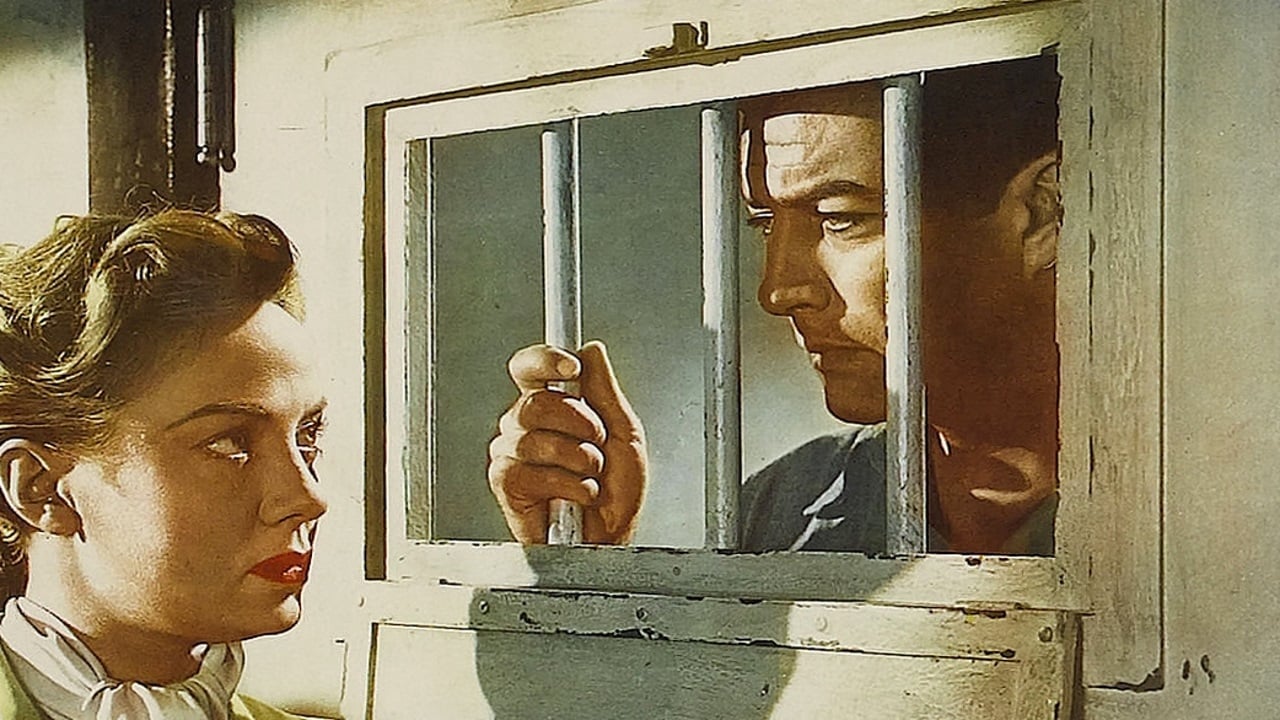

Purely Joyful Movie!
... View MorePerfectly adorable
... View MoreThis movie feels like it was made purely to piss off people who want good shows
... View MoreThe movie's not perfect, but it sticks the landing of its message. It was engaging - thrilling at times - and I personally thought it was a great time.
... View MoreDespite the Dated Psychological Elements Often Attempted in the Noir that were Misunderstood and some Plot Points, Like the Brain Surgery, that are Contrived to Say the Least, this is a Pulse-Pounding Picture Drenched in Shadows and Rain.Along with Offbeat Characters and a World Out of Whack this Murder Mystery is High Entertainment for Film-Noir Fans. Robert Taylor is OK as He is Trying Desperately to Change His Image from Pretty Boy to Versatile Actor. Audrey Totter is Stretched as a Psychiatrist and Herbert Marshall is Creepy Playing Against Type.There is Much Mood and Atmosphere and the Cinematography is Ripe Film-Noir with Expressionistic Lighting and those Swirling Flashbacks and Drugged Surrealism. The Film's Shortcomings, the Already Mentioned Medical Missteps, and an MGM Capitulation of a Happy Ending that is an Anti-Noir Element Happily Included by the Studio.Overall, it is a Bonafide Film-Noir with More to Recommend than Not. It is a Must See for Fans of the Genre and even those with just a Casual Concern for Forties Films and Matinée Idols Trying to Join the Post-War Cynicism that was Not Always Pretty.
... View MoreI can see why this film didn't stand the test of time because it's not that good. Here we have Robert Taylor accused of murdering his wife and sent to an asylum. Until we discover that he is innocent, we believe that Taylor is guilty because he has darkness in him. He appears unshaven at the start, and with his one-dimensional acting of limited expressions, he looks more at home as an antagonist rather than a protagonist. He does perform like a machine sometimes, and needs a good actor to play against.Funnily, in 'Ivanhoe', we were more sympathetic towards George Sanders as the antagonist rather than Taylor as the protagonist. He was saved by a good script which gave him some good dialogue. This is what is missing from this film: a good script with some crisp dialogue.
... View MoreHigh Wall is directed by Curtis Bernhardt and adapted to screenplay by Sydney Boehm and Lester Cole from the play by Alan R. Clark and Bradbury Foote. It stars Robert Taylor, Audrey Totter, Herbert Marshall, Dorothy Patrick and H.B. Warner. Music is by Bronislau Kaper and cinematography by Paul Vogel.Suffering from a brain injury sustained during the war, Steven Kenet (Taylor) is further rocked by the realisation that he may have strangled his wife during one of his blackout episodes. Committed to a county asylum, Steven responds to treatment by Dr. Ann Lorrison (Totter) and comes to believe he just might be innocent of his wife's murder. But can he convince the authorities? Can he in fact get out of the asylum to find proof?By 1947 film noir had firmly encompassed the plot strand involving returning veterans from the war. Plot would find them struggling to readjust into society, they would be battle scarred, emotionally torn or suffering some form of injury, such as a popular favourite of film makers of the time, the amnesia sufferer. High Wall is one of the better pictures from the original film noir cycle to deal with this premise. Where except for a daft method used to bring the story to its conclusion, it's a well thought out and intelligent picture.The pairing of Taylor and Totter is one of the film's strengths, they are helped no end by having parts that requires them to veer away from roles that they were accustomed to. Bernhardt and Vogel dress the picture up superbly, the camera glides eerily around the asylum, throwing impressive shadows across the drama, and the camera technique used for Kenet's flashback sequences proves mood magnificent. Out of the asylum the visuals still remain beautiful whilst still exuding a bleakness befitting the unfolding story, with rain drenched streets the order of the night. While Kaper drifts a suitably haunting musical score across proceedings.It's unhurried and cares about attention to details, and even though some of the ethics involved in story are dubious, this is a smart entry in the psychological film noir canon. 7.5/10
... View MoreRobert Taylor is Steven Kenet, accused of killing his unfaithful wife in "High Wall," a 1947 film noir also starring Audrey Totter and Herbert Marshall. In our first glimpse of Steve, he's in a car with a dead woman careening down the road to get rid of her. The problem is, due to a brain injury suffered during the war, he can't remember what happened. He is institutionalized for psychiatric evaluation to see if he can stand trial as a sane person. Audrey Totter is Ann, the psychiatrist who takes in Steve's small son as well as works with her patient to try and uncover the truth. Herbert Marshall plays his dead wife's boss.After World War II, Hollywood began to explore mental and emotional disorders and the use of psychiatry to unlock the traumas of the mind. "Possessed," "Spellbound," and "The Snake Pit" are just a few of the dozens of films employing the use of psychiatry, mental hospitals, and/or psychotropic drugs. In "High Wall," the psychiatry seems to be more of a plot device than something that is actually used to help the patient. It's there to provide flashbacks. Meanwhile, the Taylor character, once he has surgery, has a mind of his own and is constantly slipping out or in the psychiatrist's office window, hiding in her car, and visiting the scene of the crime. The biggest problem is that the character of the murder victim is never developed, and the reasons for her behavior are never made clear. Nevertheless, the film manages to hold one's interest, has a great atmosphere and a couple of really shocking moments. There are also some very funny bits throughout, including a scene where Steve meets the public defender.This is one of Robert Taylor's best performances. After "Johnny Eager," one of Hollywood's biggest heartthrobs began to play more complex roles and more bad guys. It was a good move; he played them very well. He doesn't get much support from Audrey Totter, who turns in a dull, somewhat cold performance in an attempt to be a professional woman. She doesn't give the role a lot of shading. Herbert Marshall seems somewhat miscast and is too lethargic for a role that requires some emotional range.Very watchable for handsome Taylor's excellent performance.
... View More